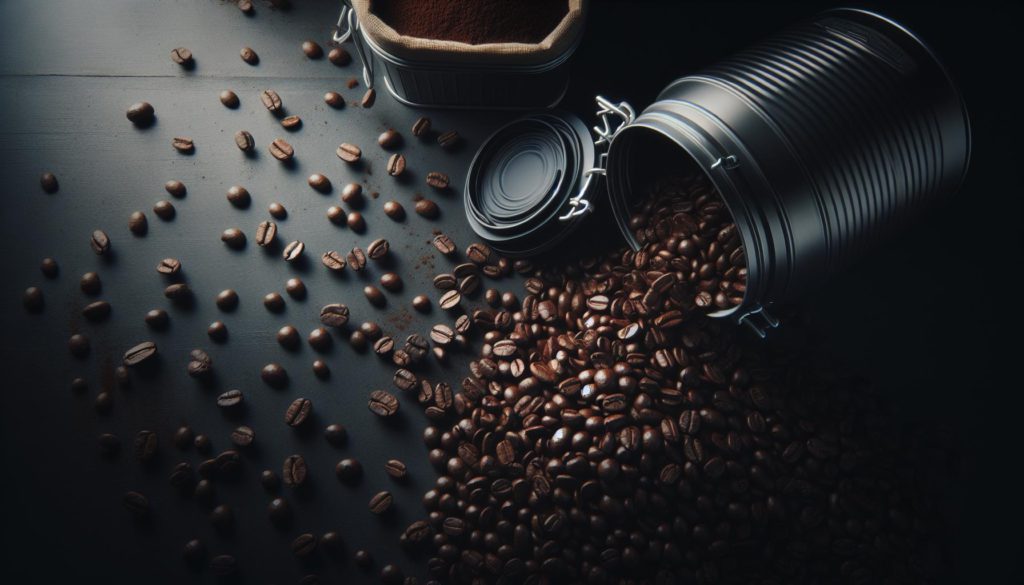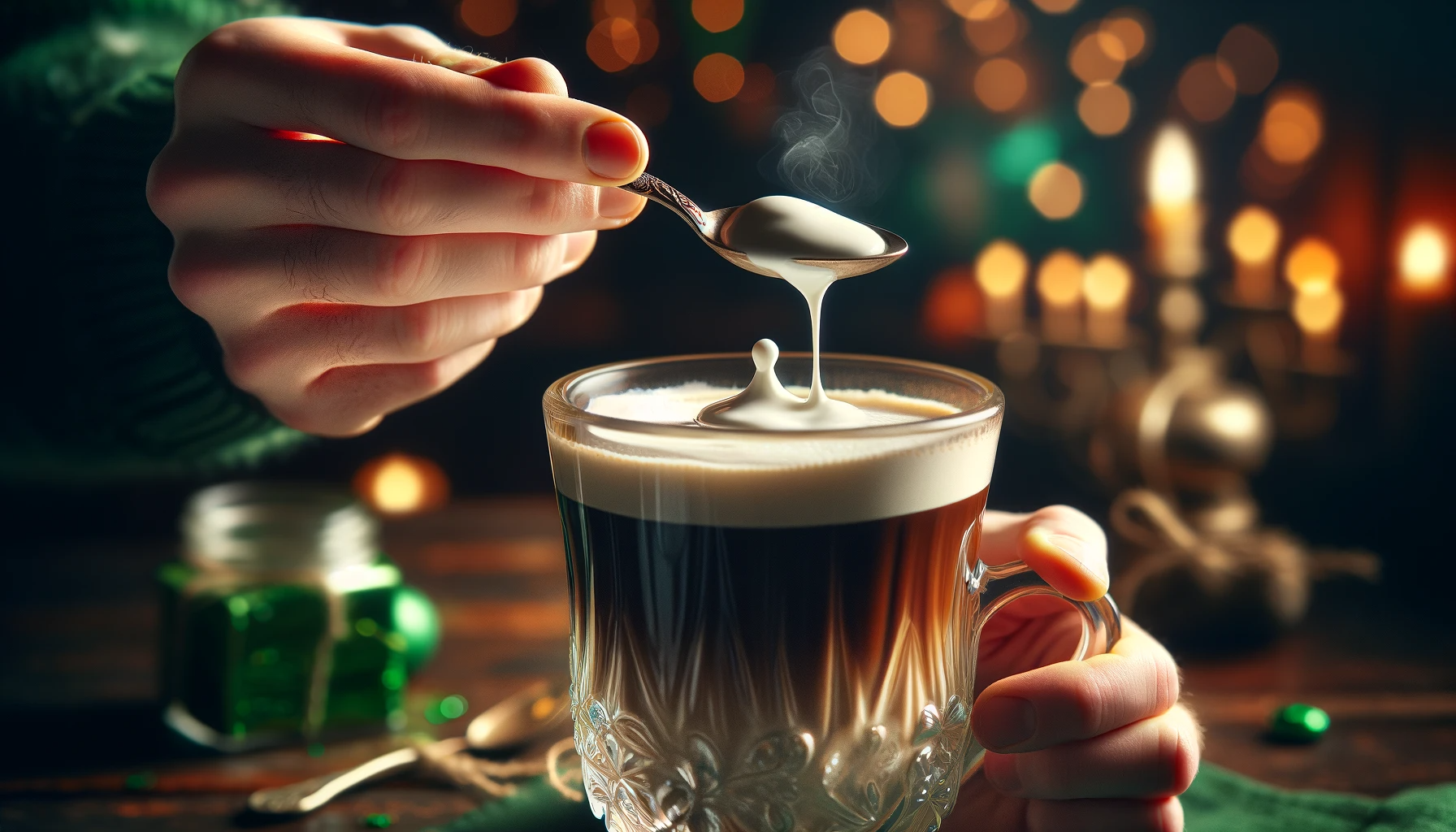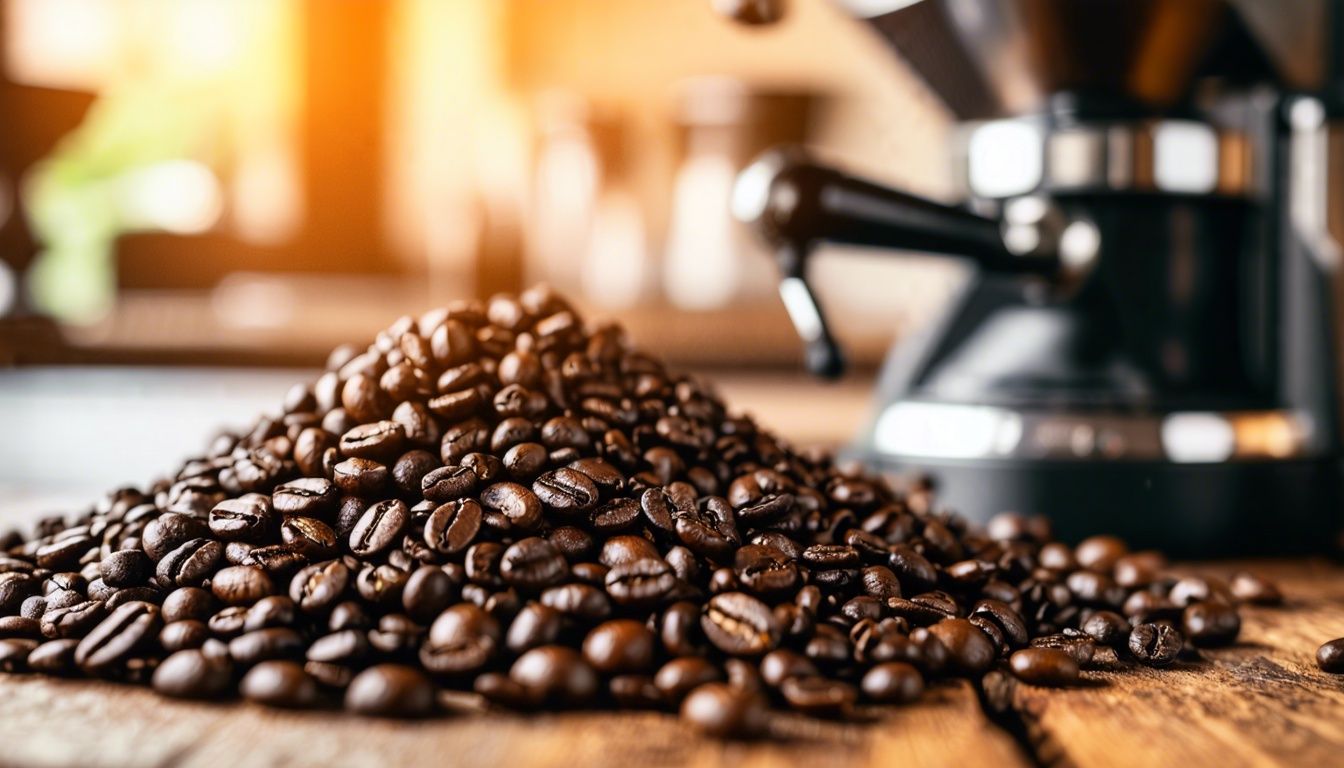Blog
Do Coffee Beans Lose Caffeine Over Time?
Coffee beans don’t greatly lose caffeine over time. The primary features affecting caffeine content are the type of coffee plant, growing conditions, and processing methods. During roasting, beans undergo chemical reactions altering flavour and aroma but not caffeine levels.
In this text, you’ll learn why roast level doesn’t impact caffeine content and how the roasting process affects coffee beans. We’ll explore common misconceptions about dark and light roasts, focusing on how moisture loss and bean size influence your cup of coffee.
Understanding these details will help you make informed choices about your coffee preferences. Whether you love a dark roast or a light brew, you’ll discover what truly affects your coffee’s caffeine content.
Understanding Caffeine in Coffee Beans
Coffee beans do not lose caffeine over time. Even when roasted, the caffeine content remains stable because the roasting temperatures do not exceed the levels needed to break down caffeine.
Caffeine is a natural stimulant found in coffee beans. It belongs to the class of compounds known as alkaloids. Once you drink coffee, caffeine quickly enters your bloodstream, where it blocks the effects of adenosine, a neurotransmitter that promotes relaxation and sleep.
How Caffeine Content Changes with Roasting
Roasting coffee beans alters their flavour and aroma but does not greatly impact the caffeine content. This is because typical roasting temperatures, which can reach up to 470°F (242°C), are insufficient to degrade caffeine.
Roasting Levels and Caffeine Stability:
| Roast Level | Caffeine Content per 35g Sample |
|---|---|
| Light Roast | 490mg |
| Medium Roast | 520mg |
| Dark Roast | 600mg |
- Measurement Method: When measured by volume, light roasts show more caffeine due to denser beans. Measured by weight, dark roasts contain more because the beans are lighter and larger.
- Brewing Method: Finer grounds and longer brewing times increase caffeine extraction.
Understanding these nuances allows you to make informed choices about your coffee’s caffeine content, whether opting for light roast coffee, medium roast, or dark roast coffee.
Do Coffee Beans Lose Caffeine Over Time?
Coffee beans do not lose caffeine greatly over time if stored properly. Caffeine is a stable chemical that stays potent for months without degrading.
Features Influencing Caffeine Degradation
Several features can influence the overall quality and freshness of coffee beans, although caffeine remains stable. These include:
Storage Conditions
Storage conditions are key for maintaining coffee bean freshness. Exposure to air, moisture, heat, and light can degrade coffee beans, impacting their flavour and aroma. Proper storage in airtight, opaque containers at room temperature helps preserve freshness.
Table: Effective Storage Tips
| Factor | Recommendation |
|---|---|
| Air | Use airtight containers |
| Moisture | Store in dry environments |
| Heat | Keep at room temperature |
| Light | Use opaque containers to block light |
The Role of Storage Conditions
Storage conditions directly impact the freshness and quality of your coffee. Airtight containers help prevent exposure to air and moisture. Opaque containers block light, preserving flavour and aroma. Room temperature storage prevents heat degradation.
Properly stored coffee beans retain caffeine. But, roasted coffee begins to lose freshness immediately after roasting. Buying smaller batches of freshly roasted coffee and storing them properly helps maintain flavour and aroma.
By understanding these storage principles, you can enjoy fresher coffee with consistent caffeine content.
How to Store Coffee Beans for Maximum Freshness
Coffee beans can lose freshness over time, but proper storage helps maintain their flavour and caffeine content.
Ideal Storage Conditions
Light, heat, oxygen, and moisture are the primary features that degrade coffee beans. These elements cause the volatile compounds in coffee to degrade, affecting both flavour and aroma.
Optimal Conditions Table
| Factor | Impact on Coffee Beans | Storage Recommendation |
|---|---|---|
| Light | Causes photodegradation, affecting flavour and aroma | Store in a dark place or use light-blocking containers |
| Heat | Accelerates degradation, leading to stale beans | Keep in a cool, dry location |
| Oxygen | Can cause beans to go stale | Use airtight containers |
| Moisture | Promotes growth of mould and spoilage | Store in a low-humidity environment |
Best Containers for Coffee Beans
Containers play a key role in maintaining the freshness of coffee beans. The best options include:
- Airtight containers: Minimise exposure to oxygen and help maintain freshness.
- Opaque containers: Block light, preventing photodegradation.
- Vacuum-sealed bags: Provide an additional layer of protection, ideal for long-term storage.
Airtight, dark containers effectively preserve the flavour, aroma, and quality of your coffee, making every cup as fresh as possible.
The Impact of Coffee Bean Age on Taste and Aroma
Coffee bean age directly impacts taste and aroma. As beans age, they undergo oxidation—a process where exposure to oxygen degrades volatile compounds. This degradation causes a significant loss in flavour and aroma. For instance, freshly roasted coffee boasts a rich, complex profile, whereas older coffee tends to taste flat and stale. Proper storage methods like using airtight, opaque containers minimise these changes by limiting oxygen exposure.
Environmental features also play a role. Light, heat, oxygen, and moisture accelerate the ageing process. Light exposure causes photo-oxidation, leading to further degradation of flavour compounds. High temperatures speed up chemical reactions, which negatively impact the beans’ quality. Moisture causes beans to absorb water, diluting their flavours and promoting the growth of mould.
| Factor | Impact on Coffee Beans |
|---|---|
| Oxidation | Degrades volatile compounds |
| Light Exposure | Causes photo-oxidation |
| High Temperatures | Speeds up chemical reactions |
| Moisture | Leads to flavour dilution and mould growth |
Maintaining coffee freshness requires optimal storage conditions. Store your coffee beans in a dark, cool, and dry environment to slow the ageing process. Using vacuum-sealed containers provides added protection against oxidation and moisture. Consider grinding beans just before brewing to preserve maximum freshness.
Aged coffee beans lose their original aroma. Producers recommend consuming coffee within 2-4 weeks of roasting for the best flavour. Although older beans retain caffeine content, their diminished taste could affect your overall coffee experience. Comparatively, green coffee beans have a longer shelf life but still benefit from proper storage to maintain their potential flavours and aromas once roasted.
By understanding the variables that affect coffee beans, you can ensure your daily cup retains its delightful characteristics, enhancing your coffee drinking experience.
Conclusion
So there you have it. While coffee beans do lose some of their caffeine content over time, the bigger concern is the loss of flavour and aroma. Proper storage is key to keeping your beans fresh and tasty. By storing your coffee in a cool, dark, and dry place, you’ll enjoy a better cup every morning. Don’t forget to use airtight containers to keep those beans as fresh as possible. Enjoy your coffee at its peak by consuming it within a few weeks of roasting. Happy brewing!
Frequently Asked Questions
How does coffee bean age affect flavour and aroma?
Coffee bean age leads to oxidation, resulting in flavour degradation. As beans age, they lose their original aroma and taste. To maintain optimal flavour, it is recommended to consume coffee within 2-4 weeks of roasting.
What factors affect the freshness of coffee beans?
The primary factors affecting coffee bean freshness are light, heat, oxygen, and moisture. Exposure to these elements can accelerate the ageing process, leading to flavour dilution and possibly mould growth.
How should coffee beans be stored to maintain freshness?
To preserve freshness, store coffee beans in a dark, cool, and dry environment using airtight containers. This helps slow down the oxidation process and maintain flavour and aroma.
Is it safe to drink old coffee beans?
While drinking old coffee beans stored properly isn’t dangerous, the taste may not be as good as fresh coffee. Old beans lose their original flavour and aroma, affecting the coffee-drinking experience.
Can coffee beans be stored for long periods?
Unopened coffee bean packs can remain fresh for up to a year from the roast date. Once opened, it’s best to consume the beans within three weeks to enjoy optimal flavour and aroma.
Why do coffee beans lose their strength over time?
Coffee beans lose their strength due to exposure to air and moisture, which causes the essential oils to evaporate and oxidise. This results in diminished flavour and aroma over time.



